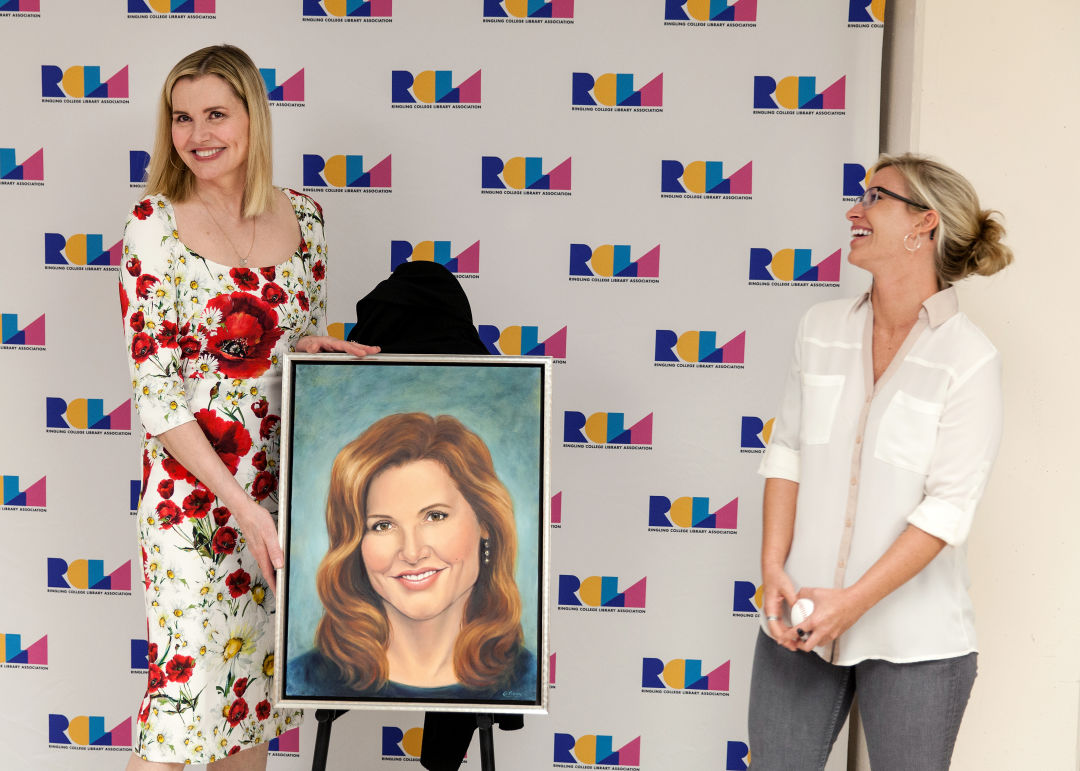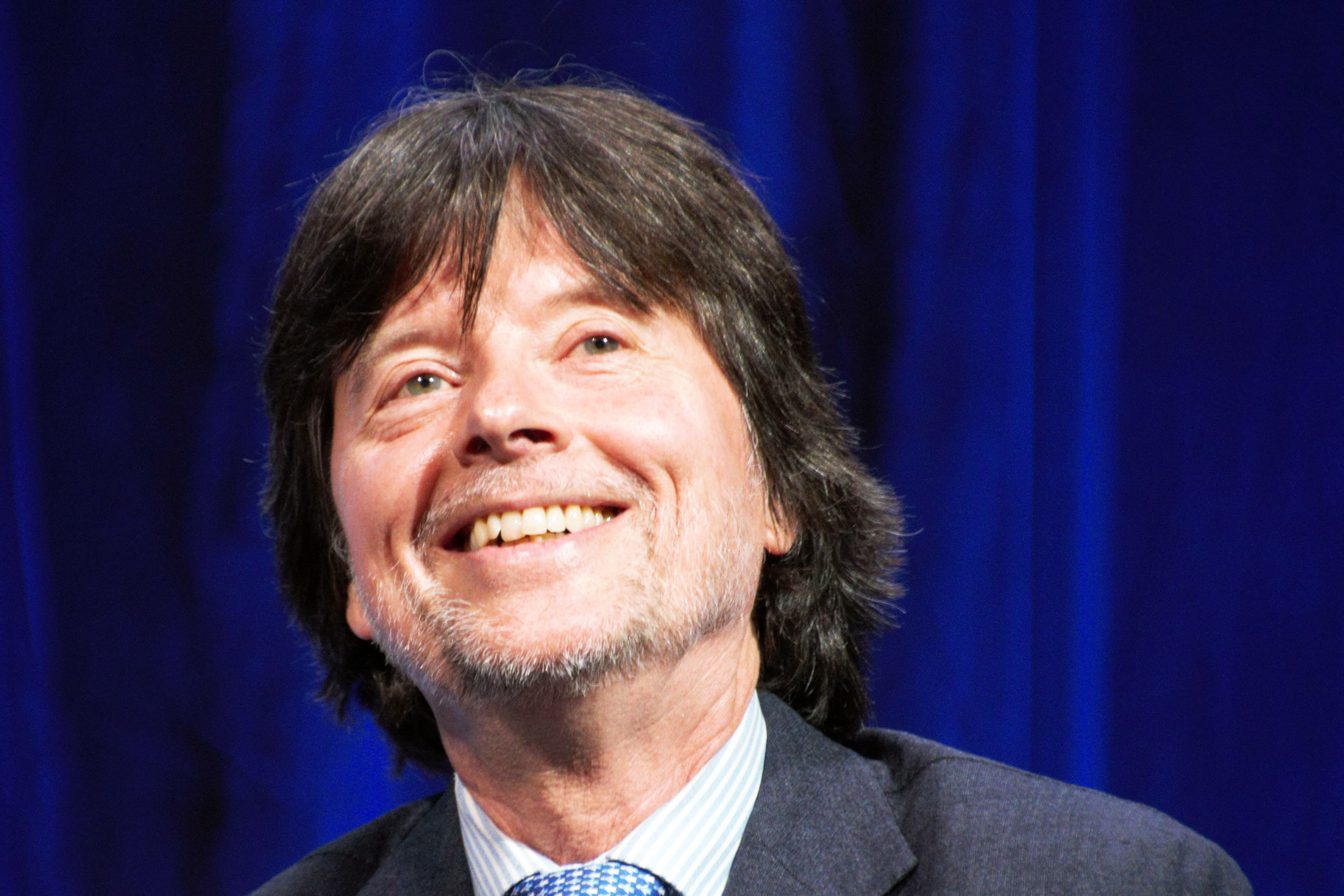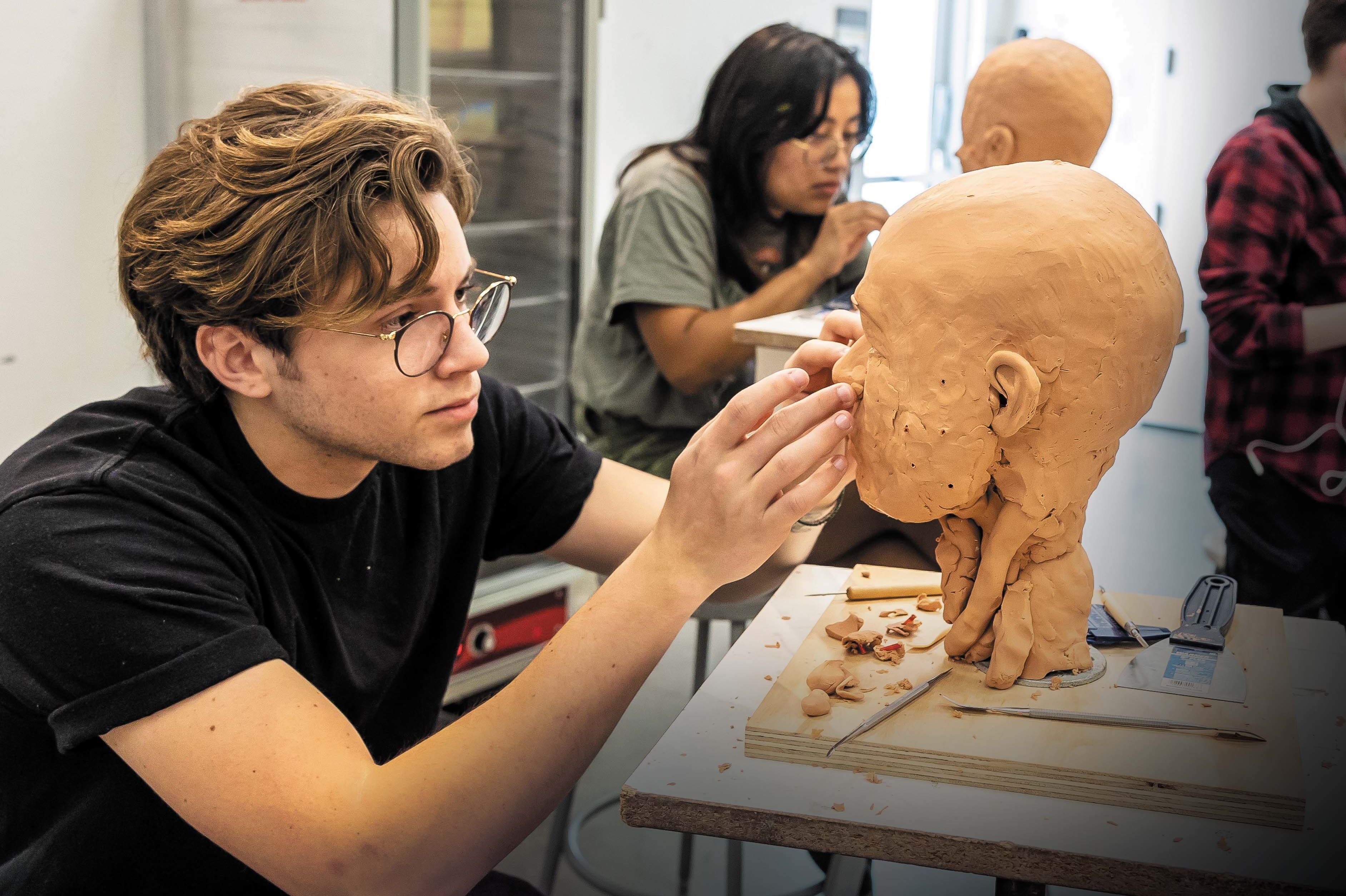Geena Davis Is On a Mission for Gender Equality in the Media

Actor Geena Davis receiving her portrait from Ringling College student Elizabeth Gray backstage before her Ringling Library Association Town Hall talk.
Image: Robert Pope Photography
Don’t discount the power of a media image on a young girl’s life, says Academy Award-winning actor Geena Davis (Tootsie, Thelma & Louise, The Accidental Tourist, A League of Their Own), who was in Sarasota Monday giving two charming and humor-laden talks at the Ringling College Library Association Town Hall series about a serious subject: the damaging way that females in American television and film are overwhelmingly “sidelined, hypersexualized or simply not there.”
The Geena Davis Institute on Gender in the Media, which she founded 10 years ago after watching children’s shows with her then-toddler daughter and realizing that the casts were primarily male, collects data on gender disparities in film and television and uses that to persuade studio executives to diversify their casts and crews.
Why does that matter? Elizabeth Gray, the Ringling College student who painted Davis’ portrait and presented it to her backstage before her morning talk, gave the perfect answer. She’d seen A League of Their Own as a young child, she told Davis, and because of it she’d always wanted to be a baseball catcher. But when she got old enough to join a team she was told she was too scrawny. “I said no, if Dottie Hinson (the role Davis played) can be a catcher, so can I.” And she went on to catch for school baseball teams for eight years.
This is the 25th anniversary of the release of the film about the All-American Girls’ Professional Baseball League, whose members played during World War II. “I love hearing someone say, ‘I love playing sports because of that movie,’” Davis says.
She cites another example. In 2012, after the hugely popular films The Hunger Games and Brave were released, for example, participation by girls in the sport of archery skyrocketed. The institute, which collects data on gender disparities in entertainment aimed at children 11 and under, did a study. Turns out seven out of 10 girls said they picked up the sport because of one of those movies. (Davis herself is a champion archer; she was a finalist in the Olympic trials in 1999, just missing competing in the Sydney Games.)
“That’s why I like to say, ‘If they see it, they can be it,’” she told the Town Hall audience to applause.
The U.S. ranks 100th in the world in female representation in public office—“unfathomable,” Davis says—and it is “seriously underrepresented in all sectors of our society, but we’re not even aware of the extent of it. Think of how dramatically different the world would be” if there were parity in the entertainment industry.
And it’s an international issue, too, says Davis, who is Special Envoy for Women and Girls in ITC for the UN’s International Telecommunications Union, an official partner of UN Women and chair of the California Commission on the Status of Women. After all, “80 percent of the media consumed around the world was made in America,” she says.
A Town Hall program note: Former President of Mexico, Felipe Calderon, will step in for former United Nations head Kofi Annan at the last lectures of the season on March 22.



